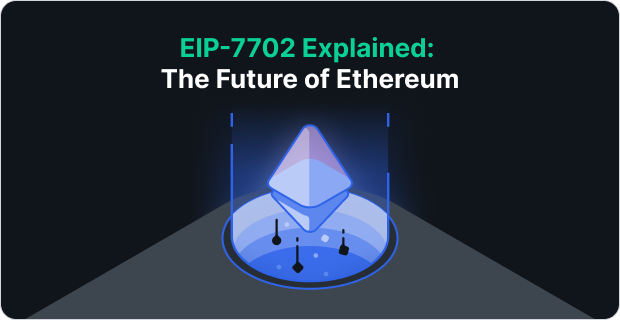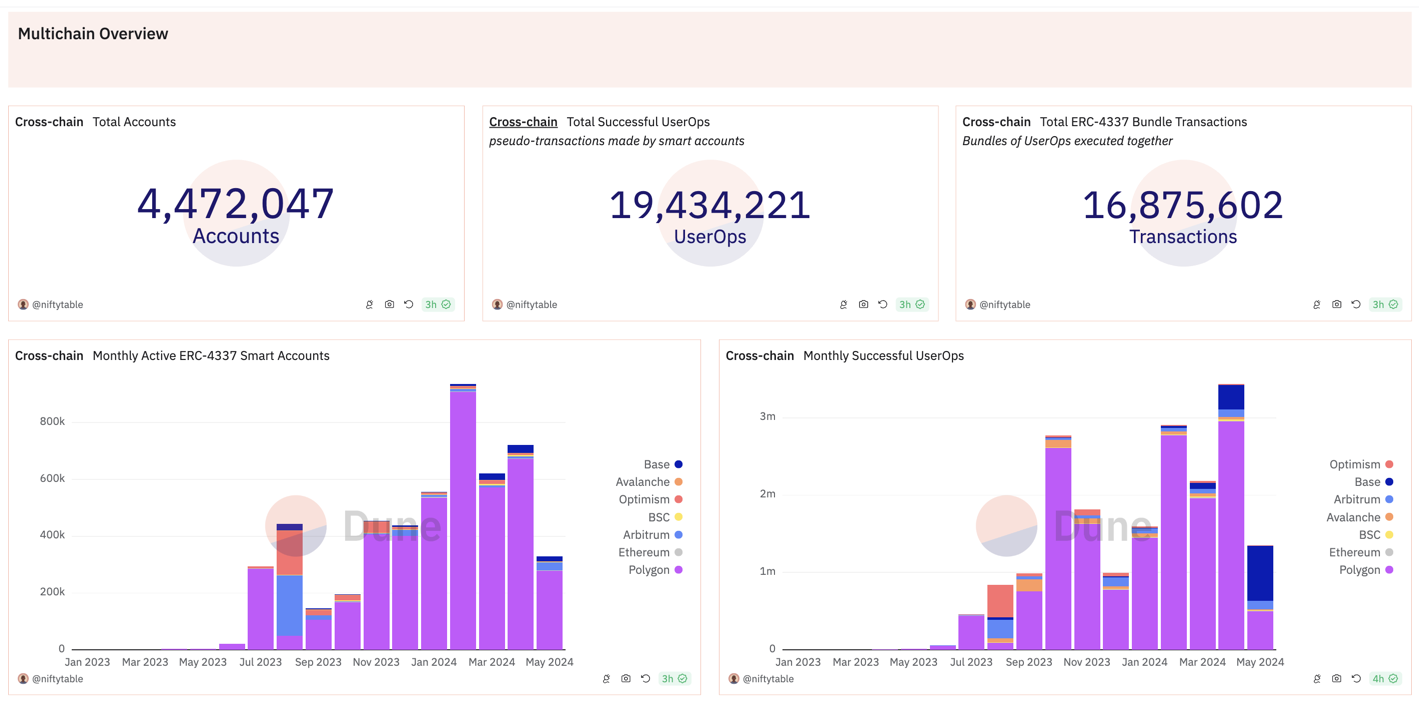EIP-7702 paves the way for a more user-friendly and developer-friendly ecosystem.
Author: QuickNode
Translation: DeepTechFlow
EIP-7702 aims to enable the large-scale implementation of account abstraction on Ethereum through its lean and simple implementation.

Recently, the emergence of Account Abstraction (AA) has attracted widespread attention as a key solution to Ethereum's user experience issues. However, despite its great potential, AA has been a challenge in practical applications until recently.
Now, the emergence of EIP-7702 brings hope. This innovative proposal, put forward by Vitalik Buterin and other core Ethereum developers, aims to simplify the implementation of account abstraction.
In this article, we will delve into the details of EIP-7702, its necessity, the improvements it brings, and how it paves the way for mainstream applications on Ethereum to be more user-friendly and adaptable for the future. This goal seems more achievable, especially after the recent approval of the Ethereum ETF application.
But first, what is account abstraction?
What is Account Abstraction?
Account abstraction allows the creation of smart contract accounts to initiate and execute transactions on Ethereum without the need for externally owned accounts (EOAs). In simple terms, account abstraction aims to make the web3 experience as seamless as Web2, to the point where everyday users may not even notice they are using it, yet still enjoy all its benefits.
In the Web2 era, when customers swipe their cards at checkout terminals, all the backend systems and mechanisms running behind the scenes work silently; customers only care about completing their payment and are not concerned with the complex details of the transaction process. Similarly, the goal of account abstraction is to provide as seamless and straightforward a web3 user experience as possible through various potential use cases.

The Potential of Account Abstraction
The power of account abstraction lies in allowing developers to directly integrate complex functionalities into user accounts, such as automated trading and wallet recovery mechanisms. QuickNode provides a detailed guide to help developers further explore account abstraction or seek practical guidance. To implement account abstraction in a project, developers can simplify the process by obtaining Stackup's plugin from QuickNode's marketplace.

While this concept has sparked great interest, as evidenced by the increasing number of wallets supporting account abstraction, the lack of native Ethereum implementation highlights inherent adoption challenges.
Challenges of Account Abstraction
Implementing account abstraction on Ethereum faces several challenges. The ERC-4337 standard has inherent issues, and additional challenges are encountered during the implementation process. The main risks include:
Risk of Ownership and Control Separation: Account abstraction can separate the ownership and control of accounts to the 'EntryPoint' contract, bringing the risk of unauthorized transactions and vulnerabilities in smart contracts. Developers need to implement technical safeguards to mitigate these risks, adding complexity.
Logistical Risks of ERC-4337 Compatibility: Existing EOAs are much simpler than the complex functionalities provided by ERC-4337, requiring a significant amount of backend logic and code refactoring. Enhancing security decentralization for packagers and updates to popular infrastructures like MetaMask adds logistical challenges.

(Source: EIP-4337 Official Documentation)
- EntryPoint Contract as a Single Point of Failure: ERC-4337 heavily relies on the EntryPoint contract to handle and verify user operations, becoming a single point of failure susceptible to security and reliability issues.

Additionally, smart contract account transactions are more expensive than traditional EOA transactions, adding complexity.
EIP-7702: Proposed Solution
EIP-7702 addresses these challenges by combining the best features of ERC-4337, EIP-3074, and EIP-5003 while mitigating their respective limitations. This approach ensures a more efficient and compatible implementation of account abstraction.
Key Components:
ERC-4337 - Smart Contract Accounts: Allows smart contracts to operate as user accounts, enabling developers to build complex transaction logic and user experience improvements. However, it lacks native support for converting EOAs to smart contract accounts and lacks backward compatibility, leading to high transaction costs.
EIP-3074 - AUTH and AUTHCALL: Enhances EOA functionality by introducing two new opcodes, AUTH and AUTHCALL, to temporarily act as smart contract accounts. However, it requires a hard fork and relies on the caller, leading to centralization risks.
EIP-5003 - AUTHUSURP: Introduces the AUTHUSURP opcode for permanently migrating EOAs to smart contract accounts. This is achieved by deploying smart contract code to the EIP-3074 authorization address and revoking original private key access.
Additionally, EIP-7702 introduces a new transaction type that allows EOAs to temporarily act as smart contract wallets in a single transaction. This temporary code allocation is trustless, compatible with existing ERC-4337 infrastructure, designed for easy integration, and designed to be future-proof without requiring a hard fork.
How EIP-7702 Accelerates Ethereum Adoption
EIP-7702 significantly enhances the adoption potential of account abstraction on Ethereum through the following features:
Trustlessness: EIP-7702 eliminates the need for a central trust point by temporarily allocating smart contract code to EOAs in a single transaction. This trustless approach eliminates any access or contract signatures after the transaction.
Compatibility: EIP-7702 is fully compatible with the existing ERC-4337 infrastructure, without the need for a hard fork or new opcodes. It seamlessly operates between EOAs and smart contract accounts, unifying account abstraction on Ethereum.
Function-based Verification: EIP-7702 tightly couples verification (AUTH) and execution (AUTHCALL), reducing interference and simplifying the transition. This function-based approach enhances the developer experience by lowering the learning curve.
Future-Proof: EIP-7702 ensures backward compatibility with ERC-4337 accounts and low technical debt. Maintenance can be carried out without the need for a hard fork, allowing developers to confidently build long-term solutions.
Developer-Friendly Path to Account Abstraction
So far, the promise of account abstraction has not been realized due to implementation complexity, lack of native support, and different approaches. EIP-7702 provides a developer-friendly solution that directly addresses these core issues, enabling EOAs to have smart contract account functionality in a trustless, compatible, and future-proof manner.
As Ethereum continues to evolve, EIP-7702 represents an important step towards realizing the true potential of account abstraction, paving the way for a more user-friendly and developer-friendly ecosystem.
免责声明:本文章仅代表作者个人观点,不代表本平台的立场和观点。本文章仅供信息分享,不构成对任何人的任何投资建议。用户与作者之间的任何争议,与本平台无关。如网页中刊载的文章或图片涉及侵权,请提供相关的权利证明和身份证明发送邮件到support@aicoin.com,本平台相关工作人员将会进行核查。




